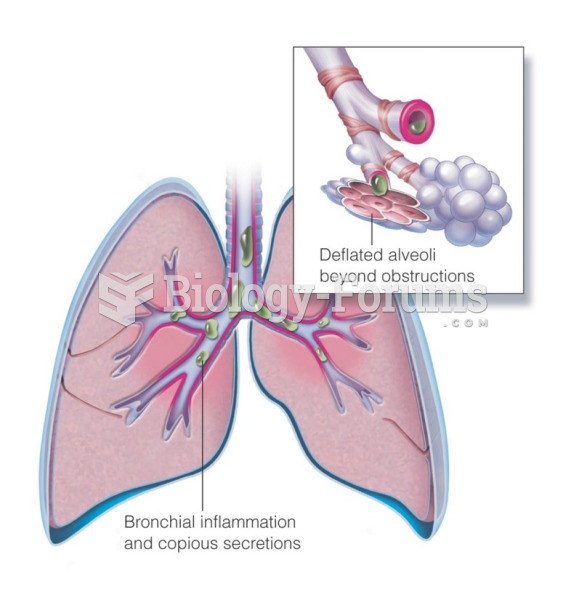|
|
|
Glaucoma is a leading cause of blindness. As of yet, there is no cure. Everyone is at risk, and there may be no warning signs. It is six to eight times more common in African Americans than in whites. The best and most effective way to detect glaucoma is to receive a dilated eye examination.
The human body produces and destroys 15 million blood cells every second.
About one in five American adults and teenagers have had a genital herpes infection—and most of them don't know it. People with genital herpes have at least twice the risk of becoming infected with HIV if exposed to it than those people who do not have genital herpes.
Everyone has one nostril that is larger than the other.
In the United States, an estimated 50 million unnecessary antibiotics are prescribed for viral respiratory infections.
 Diverticulosis. It is the presence of abnormal pouches in the wall of the large intestine (diverticu
Diverticulosis. It is the presence of abnormal pouches in the wall of the large intestine (diverticu
 A basic principle of symbolic interactionism is that meaning is not inherent in an object or event, ...
A basic principle of symbolic interactionism is that meaning is not inherent in an object or event, ...





